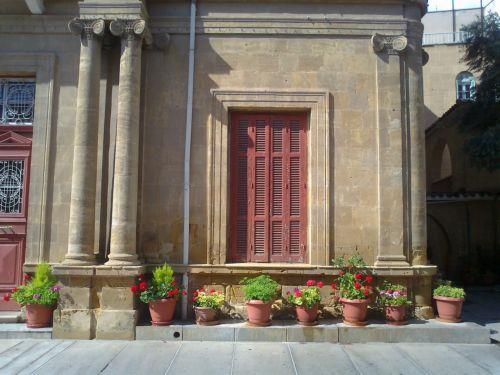A fierce dispute has erupted in Nicosia over plans to approve high-rise buildings near the historic Famagusta gate, with Cypriot archaeologists warning of irreversible damage to the city’s mediaeval character.
The Cyprus association of archaeologists (CAA) has raised strong objections to what it describes as the Nicosia municipality’s intention to greenlight the construction of multi-storey buildings in the area. In a press release, the association cautioned that such developments would alter the historic landscape and undermine the cultural integrity of the old city.
The CAA has urged authorities to adhere to existing laws and consider expert opinions to ensure the protection of Nicosia’s cultural heritage. The concern comes at a critical time, as the city is bidding for the title of European capital of culture.
During a recent meeting with the department of antiquities, the association was informed of the municipality’s plan to authorise tall buildings near the intersection of Salamina and Larnaca avenues. The area currently has an eight-storey height restriction, but concerns persist over potential urban expansion beyond these limits.
The CAA has labelled the issue as “extremely critical and alarming”, reiterating its firm opposition to large-scale interventions in historically sensitive areas. The group warns that such developments would degrade the unique mediaeval character of Nicosia, prioritising financial interests over cultural preservation.
Under Cypriot law, any development near an ancient monument requires special approval. The department of antiquities has a legal mandate to assess whether such projects impact protected sites. The CAA insists that urban planning authorities must respect the department’s expert recommendations, given its role as the guardian of the island’s cultural heritage.
The association further argues that major construction proposals should undergo collective and multidisciplinary evaluation, rather than being subject to the discretion of municipal or urban planning bodies.
“Changes to planning regulations should be based on thorough policies and clear strategic planning, not dictated by investor interests,” the statement reads.
The archaeologists also stress that Nicosia municipality has a duty to safeguard the city’s historical identity. Unregulated high-rise construction, they argue, clashes with this responsibility and threatens the capital’s appeal as a cultural destination.
With Nicosia aiming to secure the European capital of culture title, the CAA warns that urban expansion must align with long-term cultural and social priorities rather than short-term economic gains. The association calls for immediate governmental action to protect historic buildings that form an integral part of the city’s architectural legacy.
“The unchecked loss of such buildings due to chaotic urban development and investor pressure endangers not just the city’s identity but also the connection of its residents with their history and heritage,” the statement concludes.
The CAA has called on Nicosia municipality and state authorities to take expert advice seriously and to acknowledge public concerns over developments that violate heritage laws and distort the city’s historical character.
“Such urban projects do not align with the principles of sustainable development and balanced growth,” the association asserts, warning that they could also harm residents’ quality of life.
As the debate intensifies, all eyes are on Nicosia’s municipal authorities to see whether cultural preservation or modern development will take precedence in shaping the city’s future.






Click here to change your cookie preferences